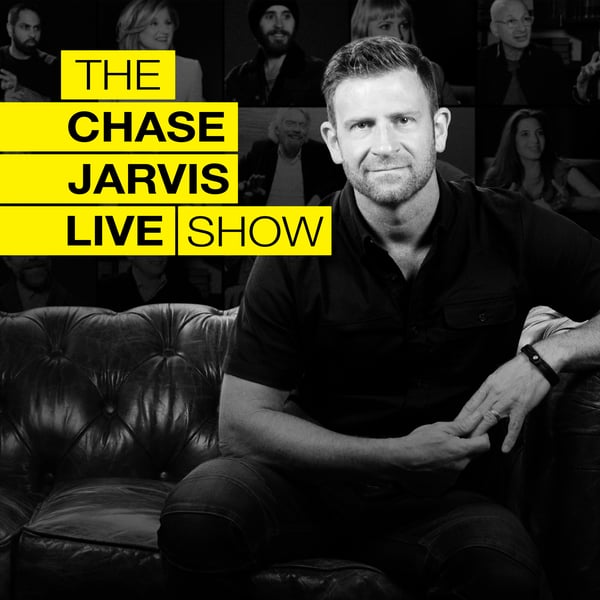Dr. Michael Norton: Are Tiny Rituals the Secret Ingredient to a Meaningful Day?
The Chase Jarvis LIVE Show
Chase Jarvis
4.8 • 641 Ratings
🗓️ 17 April 2024
⏱️ 44 minutes
🧾️ Download transcript
Summary
In this episode, Dr. Michael Norton, psychologist and professor at Harvard Business School, talks the reasoning behind humans transforming mundane activities into memorable experiences. From birthday traditions and funerals to more intimate personal moments, he describes rituals as deliberate practices that imbue daily routines with meaning. Throughout the discussion we explore various aspects of rituals, such as their application in personal, professional, and cultural contexts, in addition to their impact on creativity and coping with big emotions like stress or loss. Dr. Norton emphasizes the importance of rituals in managing life transitions, whether they're ordinary everyday moments or significant life events. He's found that awareness of both personal and shared rituals can be extremely grounding. The conversation delves into rituals' potential to create and enhance bonds in relationships, illustrated with personal anecdotes and examples from Dr. Norton's research on human behavior patterns.
Some episode highlights:
- Defining Habits vs. Rituals: How rituals have the potential to enrich our lives beyond automatic habits.
- Noticing "hidden" rituals in everyday life and exploring why they're often overlooked.
- How rituals can lead to a clearer personal head space to navigate uncertainty, both conciously and subconciously.
- How to expand the creative space to the entire process, rather than just going through the motions before reaching your true creative potential.
- Implications of Rituals in all kinds of relationships and how to start establishing them for yourself.
Enjoy!
Transcript
Click on a timestamp to play from that location
| 0:00.0 | For me, one of the things that rituals do is they take us out of that world, that they make |
| 0:05.0 | these things that can become automatic, almost like an automaton. |
| 0:09.6 | And when we do them again and again, it can make us even more of an automaton. |
| 0:13.4 | But when we repeat rituals, we actually add meaning to them. |
| 0:16.3 | So the more we do them, the more rich they become for us, whether it's silly morning routines like we talked |
| 0:21.9 | about or things you do with your family or things you do with your children or your significant |
| 0:26.5 | other, all of these kinds of repeated behaviors that we engage in, they move us from just the |
| 0:32.3 | behaviors themselves to something, I think, again, richer. And I think when we look back on life, |
| 0:38.3 | sometimes it's the rituals that we've engaged in |
| 0:41.3 | that are the most memorable things that happened in our lives, |
| 0:43.3 | the weddings, the birthdays, the holidays, |
| 0:47.3 | even things like funerals on the sadder end of rituals. |
| 0:50.3 | These are the kinds of experiences that really are very emotional and very meaningful for us. |
| 0:56.1 | And so they do sort of accumulate over time into a more, I think a more interesting life that we |
| 1:02.5 | look back on and say, I'm really glad that I had that. |
| 1:08.0 | That nugget of wisdom was from Dr. Michael Norton. Now, if you're not familiar with Dr. Norton's work, |
| 1:15.5 | he is an HBS, a Harvard Business School professor, a psychologist who researches rituals. |
| 1:24.0 | Now, when I first got wind of Dr. Mike's work, I was like, oh, I'm interested in rituals, |
| 1:29.7 | in large part because I'm interested in habits. What I came to find out through reading this |
| 1:35.1 | great new book that we're going to talk about in today's show, Dr. Mike's new book called |
| 1:39.5 | The Ritual Effect, is, well, it's many things. Habits are things that you need to get done. Rituals, |
| 1:48.6 | they help with meaning. And my goal in this human life is to have a rich, meaningful life. |
... |
Please login to see the full transcript.
Disclaimer: The podcast and artwork embedded on this page are from Chase Jarvis, and are the property of its owner and not affiliated with or endorsed by Tapesearch.
Generated transcripts are the property of Chase Jarvis and are distributed freely under the Fair Use doctrine. Transcripts generated by Tapesearch are not guaranteed to be accurate.
Copyright © Tapesearch 2025.

